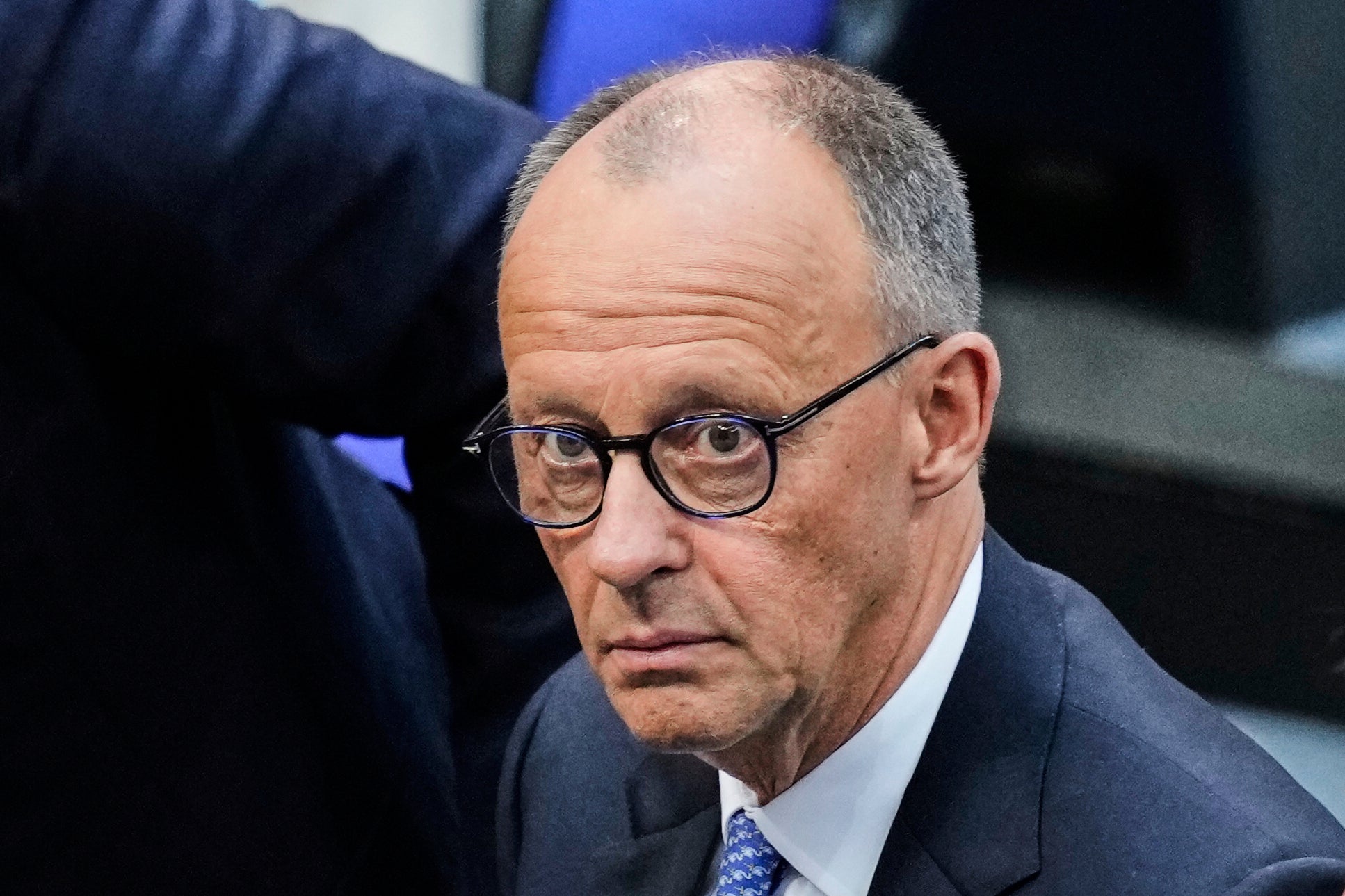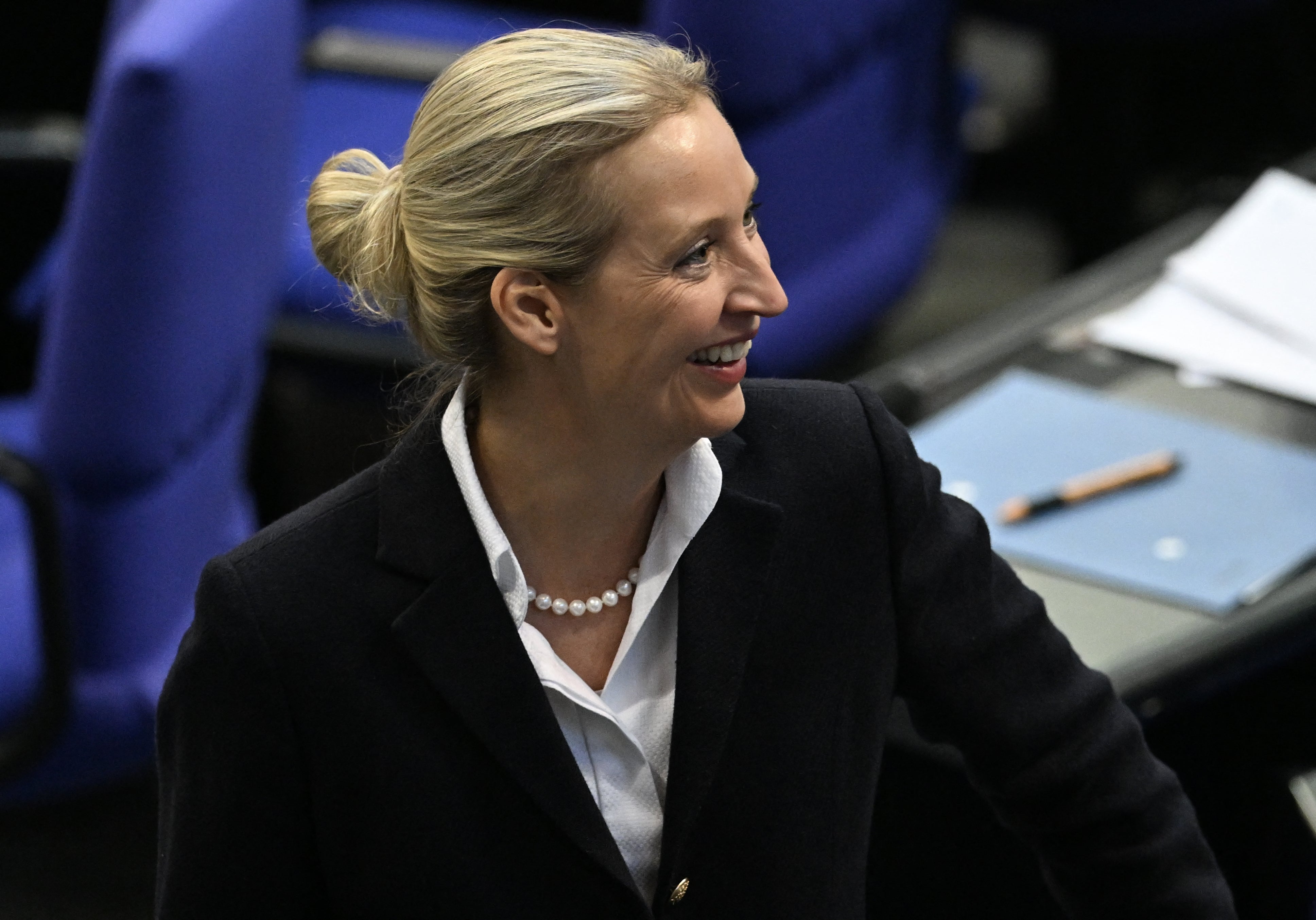Friedrich Merz suffers shock defeat in German parliament vote to be named chancellor — by six votes
Mr Merz needed a majority of 316 out of 630 votes in a secret ballot – but received only 310 votes
.jpeg)
Germany’s Friedrich Merz failed to secure enough parliamentary votes to become chancellor – failing by just six votes in a humiliating setback on his path to power.
The ballot was the first time in Germany’s postwar history that a candidate has lost in the first round, derailing what had expected to be a smooth process for the 69-year-old to become Germany's 10th chancellor just two and a half months after winning nationwide elections.
Mr Merz, who leads the centre-right Christian Democratic Union (CDU)/Christian Social Union (CSU) bloc needed a majority of 316 out of 630 votes in a secret ballot but only received 310. That is well short of the 328 seats held by his coalition, which includes the centre-left Social Democrats (SPD) led by outgoing Chancellor Olaf Scholz.
It was not immediately clear whether rebels among Mr Merz’s conservatives were responsible, or if members of the SPD had withheld their support. Not everyone in the SPD was happy with the coalition deal, and disaffected members may have derailed the vote. But party officials were adamant their party was fully committed to it.
The lower house of parliament — called the Bundestag — now has 14 days to elect a candidate with an absolute majority. Mr Merz can run again, but other legislators can also throw their hat in the ring. There is no limit to the number of votes that can be held within the two-week period.
If that also fails, the constitution allows for the president to appoint the candidate who wins a simple majority of votes, or to dissolve the Bundestag and hold a new general election.

Germany has the EU's biggest economy and serves as a diplomatic heavyweight. The new chancellor's portfolio would include the war in Ukraine and the trade policy of Donald Trump’s US administration, on top of domestic issues, such as Germany's stagnant economy and the rise of the far-right, anti-immigrant party Alternative for Germany (AfD).
"The world is in turmoil. Europe needs a strong Germany," Carsten Linnemann, the secretary-general of the CDU, said after Mr Merz's loss. He said a second vote should come soon. "We can't wait for days now, we need clarity quickly."
The lower house of parliament later reconvened at 3pm local time (2pm GMT) on Tuesday for a second vote at 3.15pm.
Johann Wadepuhl, the designated next foreign minister, said he was confident Mr Merz would ultimately prevail."It is an annoying process, but in a parliamentary democracy, in a liberal country, this is unfortunately one of the scenarios that you have to be prepared for," he said.

The AfD is the biggest opposition party in Germany's new parliament after it placed second in February. Despite its historic gains, it was shut out of coalition talks due to the so-called "firewall" that mainstream German political parties have upheld against cooperating with far-right parties since the end of the war. The AfD was classified as a “right-wing extremist effort” by the country’s domestic intelligence agency last week.
Alice Weidel, co-leader of the far-right, anti-immigrant Alternative for Germany party, slammed Merz's failure proof that his coalition has a "weak foundation." She called for Merz to resign immediately and for new elections to be held.
“Merz failed to secure a majority because he had to abandon large parts of his own campaign platform in order to buy the SPD’s support. In doing so, he disappointed parts of his own party while still not conceding enough to satisfy the SPD, AfD spokesperson Torben Braga told The Independent.
Mr Merz is due to travel to Paris and Warsaw on Wednesday to discuss European defence strategy.
Before the vote, Mr Merz said he was committed to “strong leadership in turbulent times” alongside Jens Spahn.
“We are confident that he will give our group a leading voice in Parliament that will inspire trust. I look forward to working with him!” He wrote on X on Monday.
Ahead of the shock vote result, Mr Scholz wished Mr Merz success in governing Germany.
“A change of government is a democratic normality. At the same time, it's by no means normal that it can take place in such a civilised, collegial, and decent manner. This is precious and must be protected,” he wrote on X on Monday evening.
Join our commenting forum
Join thought-provoking conversations, follow other Independent readers and see their replies
Comments
Bookmark popover
Removed from bookmarks